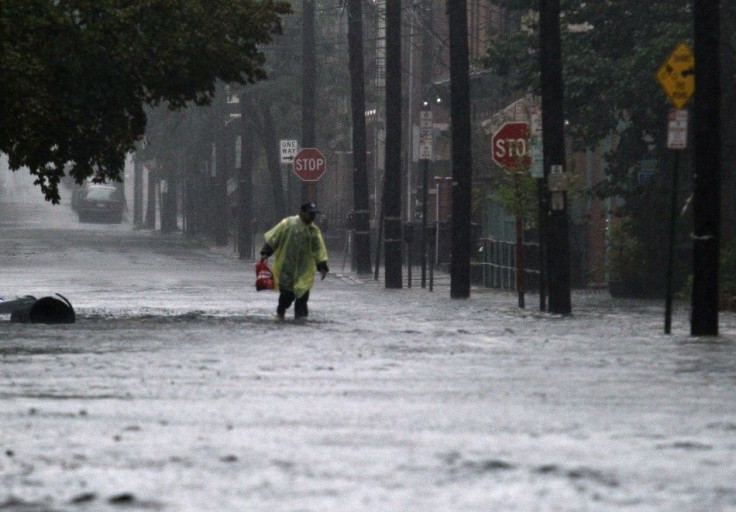Transportation Devastated Along Hurricane Irene Path -- Monday Outlook [LIVE]

In Washington, Federal Emergency Management Agency (FEMA) officials said it would take several days to begin complete cost estimates of damage caused by the storm, and to determine how long it will take be before transportation systems in the East Coast Boston-New York-Philadelphia-Washington corridor will be back to full service.
This much was clear as of Sunday at 3 p.m. EDT: expect major delays Monday and Tuesday, if and/or when any systems in those major cities returns to service Monday.
New York: All Major Transportation Systems Closed, Except Roads
New York City officials said Sunday service on all, major mass transit systems remained suspended pending an assessment of damages -- including New York's subway system -- which carries more than 6 million riders per day -- and the Long Island Railroad, MetroNorth Railroad and New Jersey Transit commuter lines. The PATH subway to New Jersey also remained closed, The New York Times reported Sunday.
What's more, New York's three major airports -- John F. Kennedy, Newark, and LaGuardia -- also remained closed and airport officials said Sunday, the air travel system probably will not approach a full schedule until Tuesday at the earliest, WCBS-880 AM reported.
Washington: Open For Business, But Expect Delays
However, all three of the Washington, D.C.-area's airports - Washington National, Dulles, and BWI, were open Sunday, but officials again underscored that ripple delays and cancellations would be the norm, and pre-arrival check-ins with respective airlines is an essential.
That shutdown of New York's three major airports will mean cancellations and delays of thousands of flights regionally, due to the large percent of U.S. flights that stop in New York, officials said. Officials urged air travelers to check with their airline before proceeding to the airport - after the airports open.
Philadelphia: Hard-Hit By Flooding
Beyond the closure of transportation systems regional, flooding and loss of electric power appeared to be the biggest infrastructure damage, and Philadelphia may have been hit the hardest.
In Philadelphia, parts of the city were flooded and water was as high as street-sign levels in some areas. Flash flooding warnings were issued up and down eastern and central Pennsylvania, usatoday.com reported.
The rivers may not crest until Tuesday or Wednesday. This isn't just a 24-hour event, Pennsylvania Gov. Tom Corbett cautioned.
Connecticut: Massive Power Outages, Many Blocked Roads
In Connecticut, more than 700,000 homes/businesses had lost power Gov. Dan Malloy said, with hundreds of downed trees and power lines, The Hartford Courant reported Sunday.
Malloy urged residents to not drive Sunday, and Interstate 95 - the major highway that crosses Connecticut from the New York state border to the Rhode Island border - was littered with debris, particularly in Waterford, Conn. in Eastern Connecticut, state officials said.
Malloy underscored that residents driving around Sunday would simply complicate electric crew and emergency team efforts to assess electric grid, road and related infrastructure damage, hence the call to not travel, if it is not absolutely essential to do so.
Malloy said Monday business openings and school district operations would be strictly local decisions.
New Jersey: Extensive Flooding
Meanwhile, in New Jersey Gov. Chris Christie said his state could have historic flooding and that officials on Sunday were turning their attention from the battered coastline to the state's rivers. Two people have died in flash floods, usatoday.com reported Sunday.
This is going to become a major if not record flooding event for us, not only on the coastline but inland,'' Christie told WCBS 880 AM, noting that the focus was now on the Raritan, Passaic, Ramapo and Delaware rivers. We're going to be focusing our attention on that, trying to make sure anyone who needs to be evacuated is safely evacuated that are around those rivers, and making sure that we're dealing with those issues as quickly and effectively as we can.''
In Delaware early Sunday, Irene dumped more than 10 inches of rain, making roadways treacherous.
© Copyright IBTimes 2024. All rights reserved.











